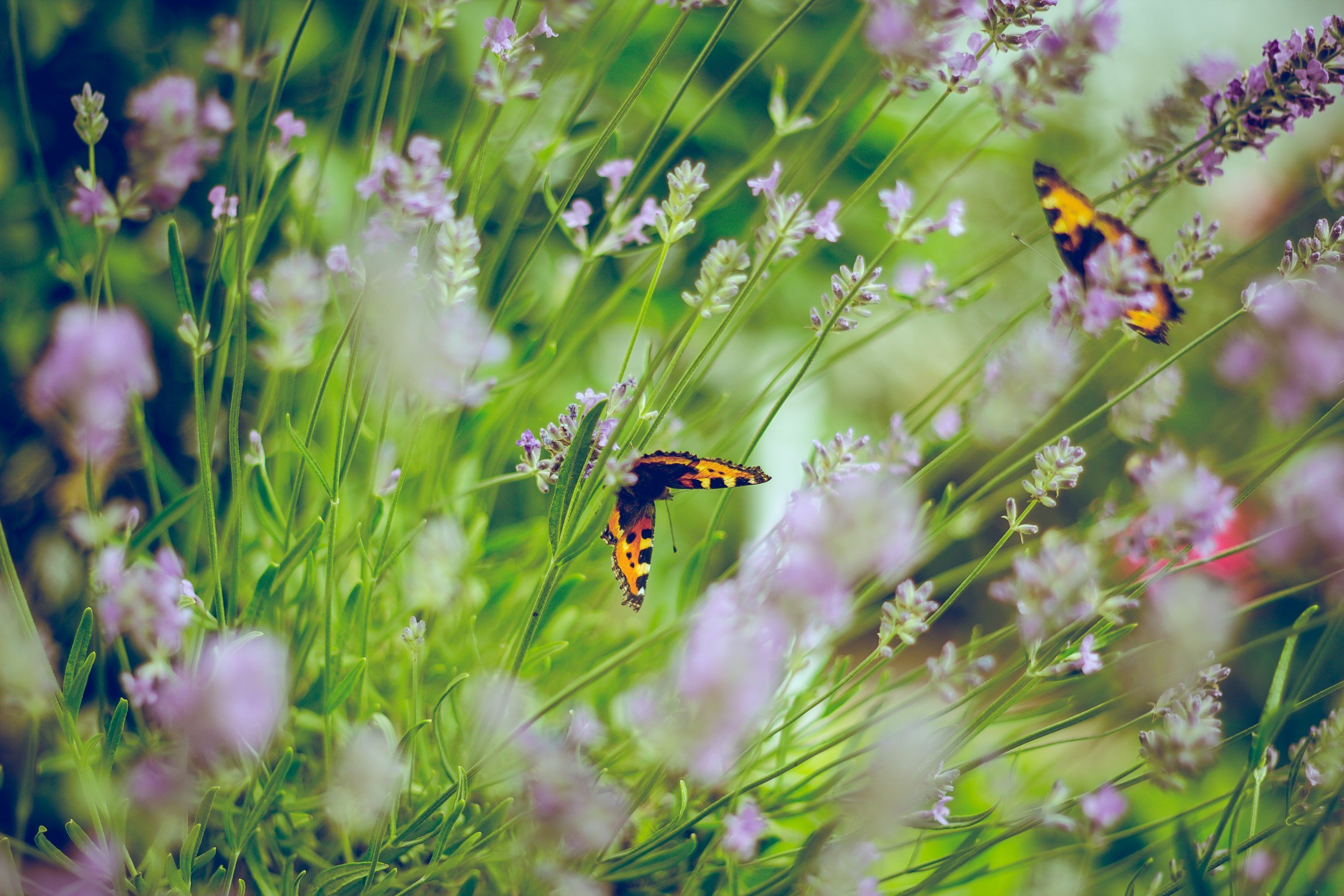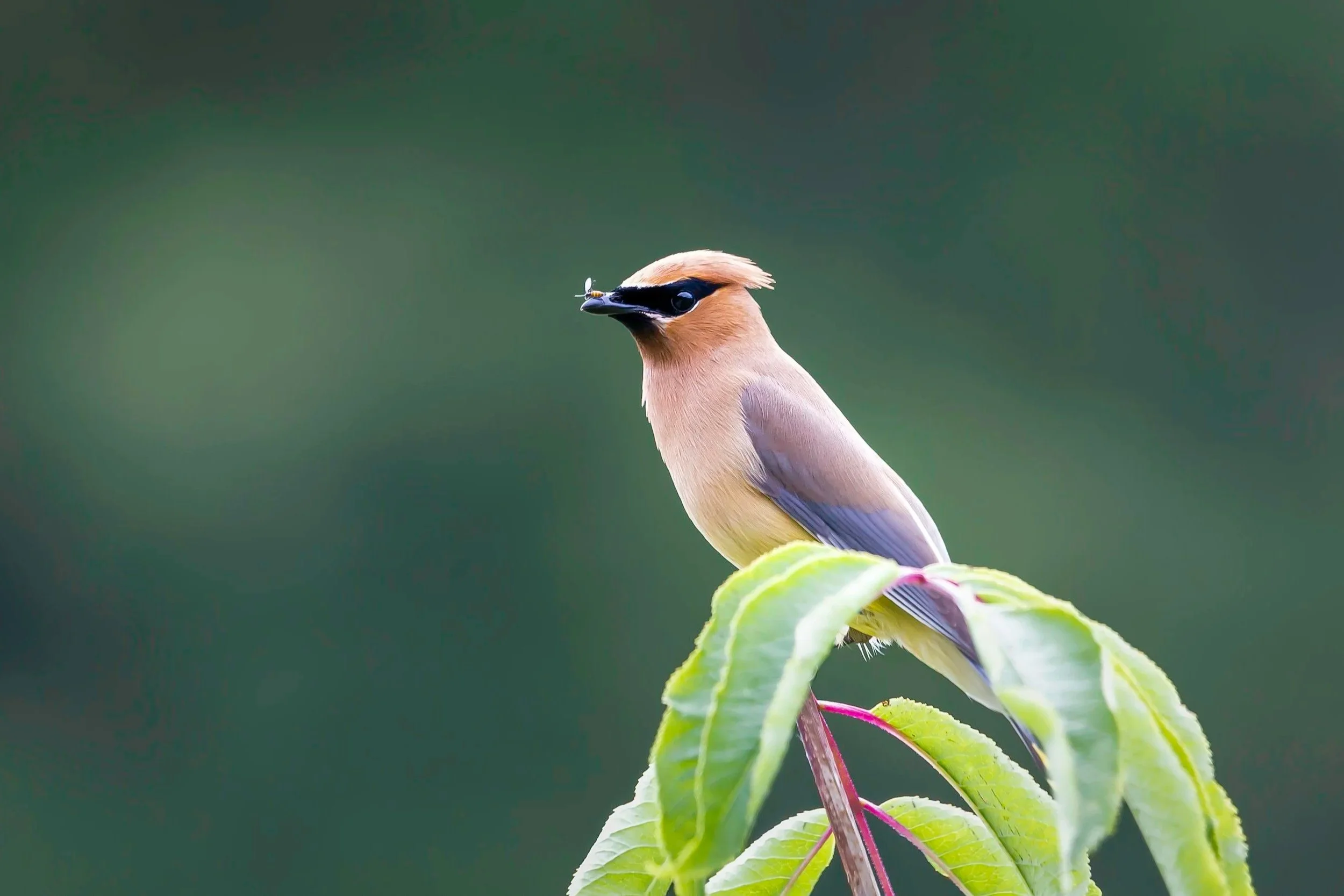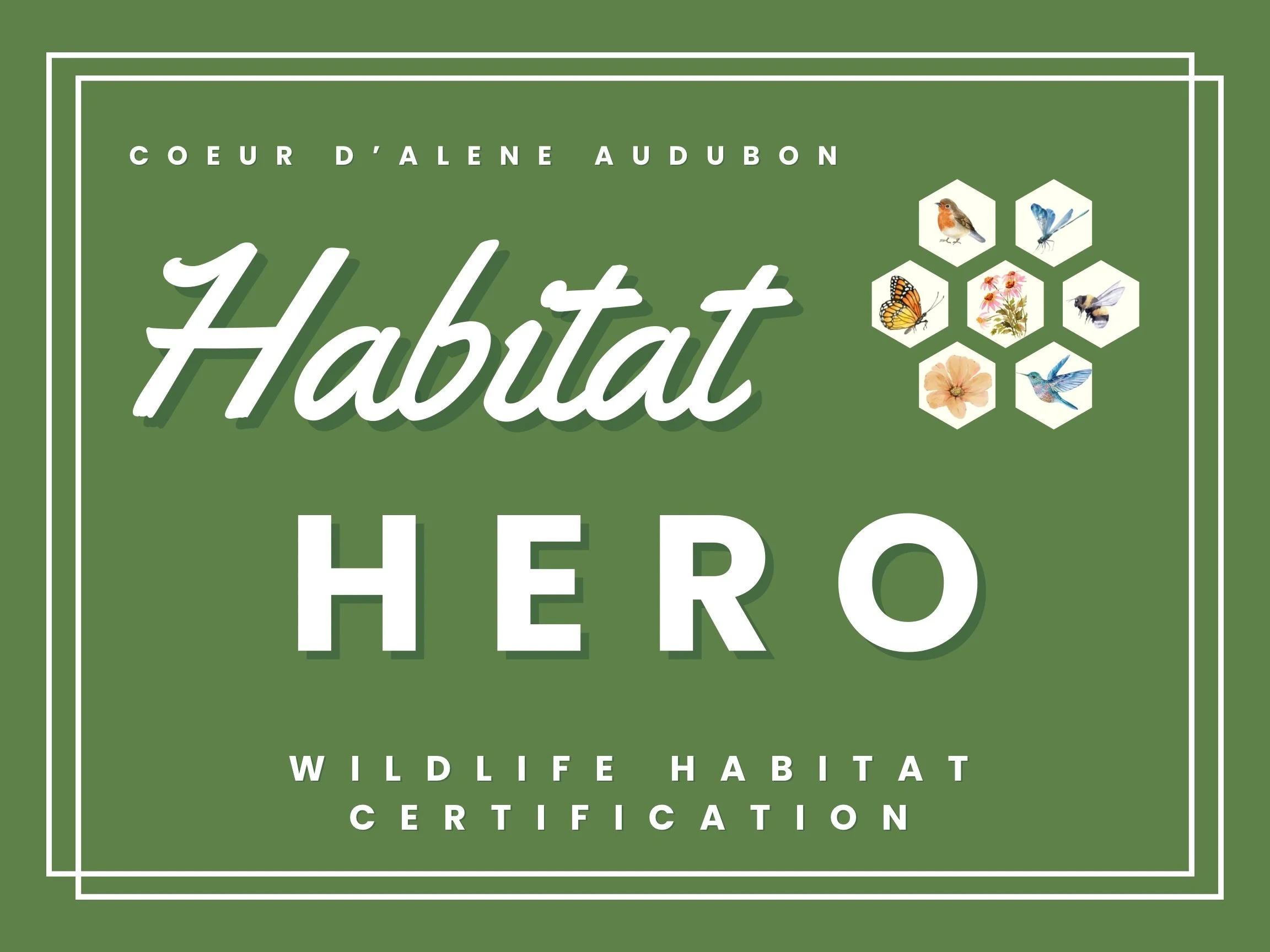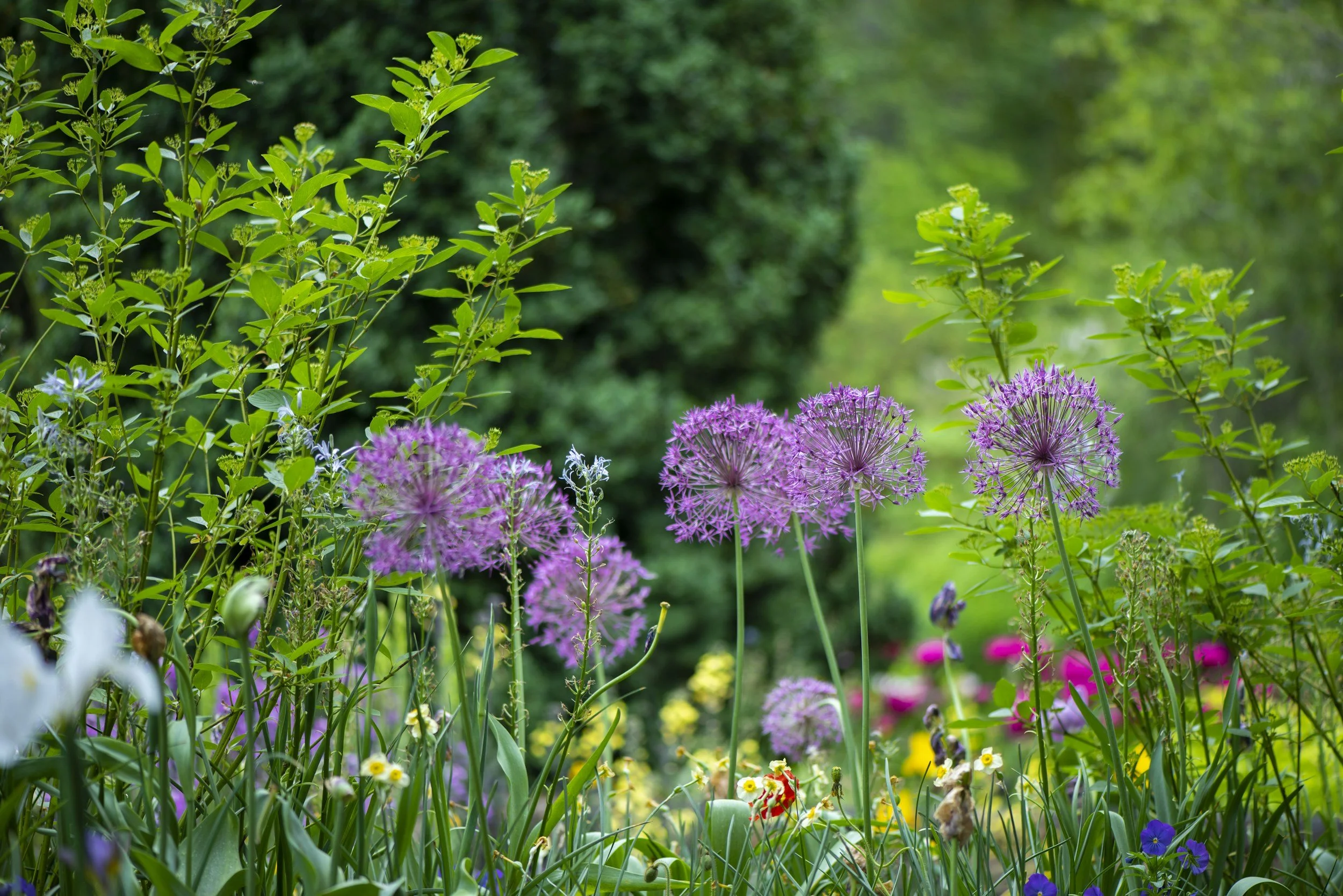Become a Coeur d’Alene Audubon Habitat Hero!
Create a Bird-Friendly Native Plant Haven in Your Yard or Patio!
The Coeur d’Alene Audubon Habitat Hero Program invites you to turn your outdoor space into a thriving home for birds and other wildlife. Even small areas of native habitat in urban or suburban areas can make a big difference and provide food, shelter, and safe resting spots for birds, pollinators, and other native species.
Getting started is simple, fun, and contributes to local conservation efforts! After you complete a short registration form, a Habitat Hero volunteer will contact you to arrange a visit. Our volunteers will perform a walk-through of your space with a goal to help you create a more bird-friendly and environmentally beneficial landscape. You can aim for Level I or II certification, depending on your space and goals.
You don’t need a fully developed habitat to join—beginners and seasoned gardeners alike are welcome. Whether you’re starting with a blank slate or already have a nature-rich oasis, we’ll provide guidance, encouragement, and resources to help you grow your habitat over time.
Together, we can create a network of bird-friendly spaces across our community!
Habitat Hero is currently available for properties of one acre or less within 20 miles of downtown Coeur d’Alene.
-
Join Coeur d’Alene Audubon
Join at our Habitat Hero membership level.
Invasive Species
Actively manage all silver and gold weeds.
Native Plants
50% of the outdoor area should be landscaped with native plants.
Include at least 3 of the 4 vegetation layers from the following infographic; not each layer needs to be native, especially trees. Consult this Northern Idaho Native Plant List courtesy of the Idaho Native Plant Society/White Pine Chapter.
Grow at least one type of the five native milkweeds in your garden for Monarch support. Milkweed plants and consults are available with our partner, Wings Rising.
Pesticide Reduction
No use of neonicotinoids (systemic insecticides). No spraying for spiders. No use of high hazard pesticides.
Water Management
Practice at least four items:
Use a programmable or timed watering system.
Use a drip system on all or some of your vegetation.
Turn your irrigation off during and right after significant rain.
Maintain your irrigation system annually to eliminate leaks and over spraying.
Irrigate at least 50% of your landscape no more than monthly.
Direct property storm water to permeable surfaces or a cistern.
Mulch at least 50% of your plants.
If you have lawn, use low-water turf grass.
Collect shower/sink water while you’re waiting for it to warm up and use on your plants.
Reuse water you use to wash your vegetables.
Other - discuss with your Coeur d’Alene Audubon advisor.
Wildlife Friendly Home
Cat addendum: cats must be kept indoors or in outdoor enclosure 100% of the time.
Practice at least five items:
Treat one or more windows to reduce bird window collisions.
Turn off outdoor lighting during bird migration (March to May and August to November) – or all year.
Provide a wildlife water feature (natural source or a maintained bird or insect bath).
At least one bird nest box, appropriate to native species and appropriately maintained.
Leave snags or supply nurse logs.
Provide beneficial insect nesting habitat (rock piles, bundles of stems and branches, areas of bare dirt/sand, maintained bee houses). Provide six or more plants (annuals or perennials) beneficial to pollinators
Leave your leaves on the ground and plants standing in the fall.
Wait to clean up in spring until the end of April or when the large bumble bees have emerged.
Plant a native pollinator meadow that blooms through the growing season.
Do not spray home for spiders.
Other - discuss with your Coeur d’Alene Audubon advisor.
Learn, Advocate and Volunteer
Practice at least four items:
Recruit 2 friends or neighbors to join the Habitat Patch Program.
If you live in a neighborhood with an HOA, ask them to support homeowners working to get certified.
Volunteer twice a year for a community habitat restoration project (Boise River ReWild, Native Plant Network, Idaho Native Plant Society, City of Boise Weed Warrior Workday, etc).
Take at least 2 classes per year about habitat restoration and planting for birds and pollinators or watch Habitat Patch videos.
Participate in the Idaho Master Naturalist Program.
Participate in the ISU Master Gardener Program.
Participate in Ada Soil and Water Conservation District Pollinator Project.
Participate in at least one community science project per year such as iNaturalist, eBird, or Audubon Christmas Bird Count.
Other - discuss with your Coeur d’Alene Audubon advisor.
-
We could create a patio subcategory.
Why Participate?
Becoming a Habitat Hero is easy, fun, and helps support local conservation efforts! Enjoy these great benefits when you sign up for the Habitat Hero Program:
Membership in Coeur d’Alene Audubon if you aren’t already a member.
Educational opportunities to learn about birds, habitat, native gardening.
Special gifts and discounts from our local partners, including free milkweed plants and discounts on native plants.
Access to a closed Facebook group where you can share your achievements, get advice, and see what other Habitat Hero Program participants are doing in their yards.
A yard sign to display on your property once it’s certified that will recognize your contributions to building key habitat for birds and other wildlife.
Providing local wildlife with a stable and safe space to thrive!
Habitat Hero Partnerships
This program gratefully acknowledges our habitat hero partners:
Coeur d’Alene Garden Club
Calypso Chapter Native Plant Society
Wings Rising
DarkSky International
The Milkweed Lady
Habitat Hero Resources
Certification Criteria
Look Who’s Certified



Habitat Hero Application
Ready to become a Habitat Hero? Let’s get started!
Questions? Contact us at habitathero@cdaaudubon.org.









